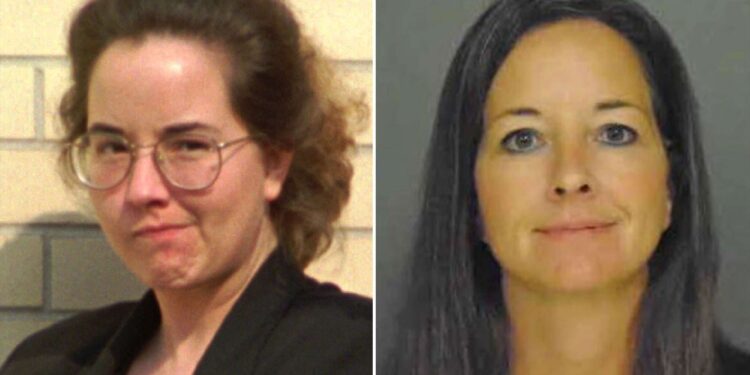:max_bytes(150000):strip_icc():format(jpeg)/susan-smith1-c96164d829ad4c21a00f989ac1a65761.jpg)
Three decades after his ex-wife Susan Smith drowned their two sons in 1994, David Smith is discussing whether he forgives the convicted murderer who is serving a life sentence for the killings but is eligible for parole in November.
In an exclusive interview with Court TV that aired on Friday, Sept. 13, David said he has forgiven Susan but that it doesn’t make the pain of losing their sons any easier.
“Yes, I have forgiven her but again that goes to my faith in God and that’s the way I was raised. That we have to forgive,” David told Court TV anchor Julie Grant. “But it sure doesn’t take away the act of what she did. It doesn’t make it any less, it doesn’t make it any easier. But I have forgiven her for what she did.”
After being convicted of two counts of murder in 1995, Susan was sentenced to life in prison. She’s currently being held at Leath Correctional Institution in Greenwood, S.C. On Nov. 4, 2024, Susan will be eligible for parole for the first time — making the possibility of the two coming face to face a reality.
Ruth Fremson/AP
“I would just tell her that you have no idea of how much damage you have done to so many people,” David said. “I would tell her that in my capabilities I’m going to do everything in my power to make sure you stay behind bars.”
At the time of the murders, on Oct. 25, 1994, then 23 year old Susan told police that she had been carjacked by a Black man who had taken off with her two young sons still in her car. For nine days, she made tearful pleas on national television for their safe return. But it was all a lie.
Want to keep up with the latest crime coverage? Sign up for PEOPLE’s free True Crime newsletter for breaking crime news, ongoing trial coverage and details of intriguing unsolved cases.
As her story began to unravel, Susan admitted that there was no carjacker, and that she had let her car roll into a lake with Michael, 3, and Alex, 14 months, still strapped into their car seats. Authorities said she committed the murders because she was secretly dating a man who didn’t want children.
Following a series of disciplinary infractions behind bars for self-mutilation, drug use and possession of narcotics or marijuana, Susan defended herself in a public letter claiming she has been misunderstood.
“Mr. Cahill, I am not the monster society thinks I am,” she wrote in 2015 to Harrison Cahill, a reporter for The State, a South Carolina newspaper. “I am far from it.”
If you suspect child abuse, call the Childhelp National Child Abuse Hotline at 1-800-4-A-Child or 1-800-422-4453, or go to www.childhelp.org. All calls are toll-free and confidential. The hotline is available 24/7 in more than 170 languages.







